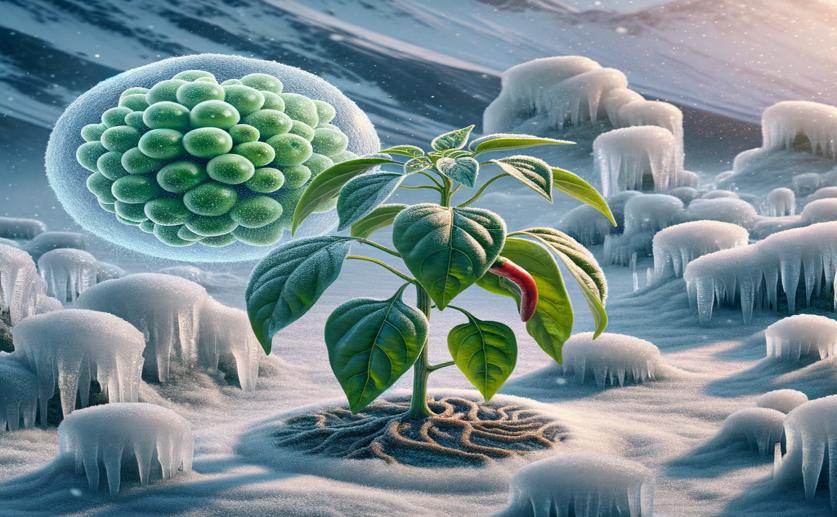
Understanding Pepper RAV Genes and How CaRAV1 Helps in Cold Stress
Jenn Hoskins
30th July, 2024

Image Source: Natural Science News, 2024
Key Findings
- Researchers at Xinjiang Agriculture University studied the role of RAV genes in pepper plants under chilling stress
- They found that specific RAV genes in pepper plants showed altered expression levels when exposed to chilling temperatures
- Transgenic pepper plants overexpressing RAV genes were more sensitive to chilling stress, similar to patterns seen in other plants under different stresses
References
Main Study
1) Comprehensive analysis of pepper (Capsicum annuum) RAV genes family and functional identification of CaRAV1 under chilling stress
Published 29th July, 2024
https://doi.org/10.1186/s12864-024-10639-x
Related Studies
2) A subset of Arabidopsis RAV transcription factors modulates drought and salt stress responses independent of ABA.
3) Genes of the RAV Family Control Heading Date and Carpel Development in Rice.



 27th July, 2024 | Jenn Hoskins
27th July, 2024 | Jenn Hoskins